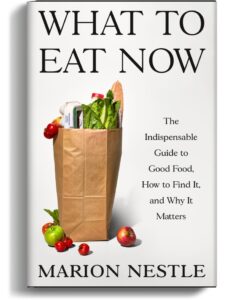A new study says eating saffron will improve your mood. Guess who funded it.
The Study: Lopresti AL, Smith SJ, Marx W, Díez-Municio M, Morán-Valero MI. An Examination into the Effects of a Saffron Extract (Affron) on Mood and General Wellbeing in Adults Experiencing Low Mood: A Randomized, Double-Blind, Placebo-Controlled Trial. J Nutr. 2025 Jul;155(7):2300-2311. doi: 10.1016/j.tjnut.2025.05.024. Epub 2025 May 23. PMID: 40414301.
Background: Saffron, derived from the stigmas of the Crocus sativus flower, has been shown in previous trials to have antidepressant effects in clinically diagnosed adults. However, the recruitment of small sample sizes, short treatment periods, and variability in the quality of studies have negatively impacted the strength of conclusions.
Objectives: The purpose of this 2-arm, 12-wk, parallel-group, randomized, double-blind, placebo-controlled trial was to examine the effects of supplementation with a saffron extract (Affron) on mood and sleep in adults experiencing subclinical depressive symptoms.
Methods: Two hundred and two adults aged 18-70 with depressive symptoms were supplemented with 28 mg saffron daily or a placebo.
Results: Compared to the placebo, saffron was associated with greater improvements in the Depression, Anxiety, and Stress scale….However, in the other secondary outcomes, there was no evidence of between-group differences.
Conclusions: This study…provides evidence supporting the beneficial effects of 3 mo of saffron supplementation on depressive symptoms in adults. Large placebo responses were evident in this study, which require consideration in future trials.
Funding: We thank Pharmactive Biotech Products, SLU, for funding the project and supplying the investigational products used for this
study.
Conflict of interest: ALL is the Managing Director of Clinical Research Australia, a contract research organization that receives research funding rom nutraceutical companies… SJS is an employee of Clinical Research Australia. WM has received funding and/or attended events funded by Cobram Estate Pty. Ltd. and Bega Dairy and Drinks Pty. Ltd…MD-M and MIM-V are employees of the study sponsor, Pharmactive
Biotech Products SLU.
Comment: Let’s hear it for placebo responses! Saffron is an extremely expensive spice usually used in pinch amounts. If it’s hard for you to imagine that it could do anything to affect depression, subclinical depression yet, there’s a good reason for that—although saffron makes food taste delicious and that alone is a mood-improver. But this study was done with a supplement, not the expensive spice. Overall, this is a study done under contract from the supplement’s manufacturer by employees of the manufacturer. As such, it is explicitly marketing research. The interpretation of this study is predictable if you know who funded it. The title of the study alone should generate the question: Who funded this?



